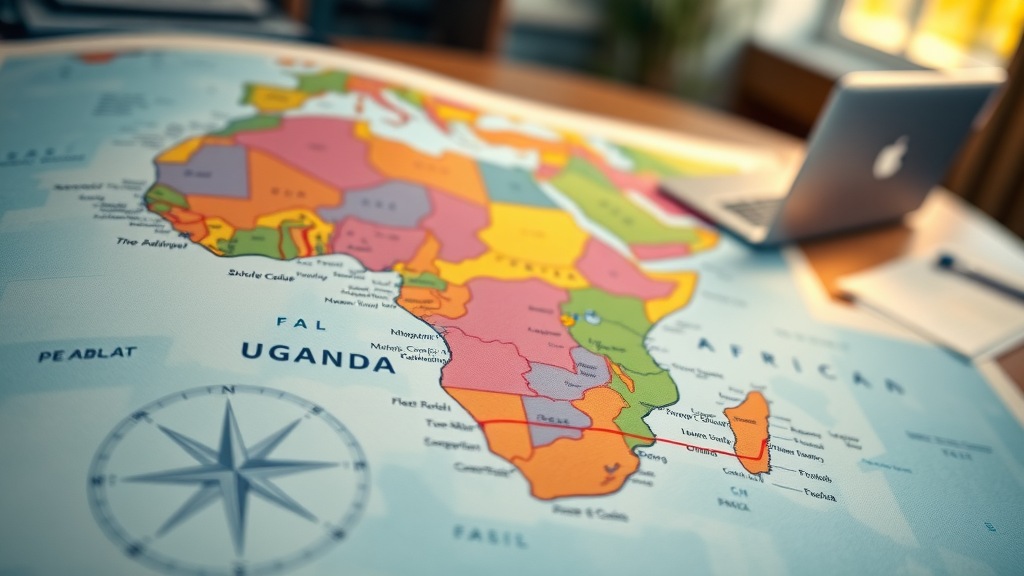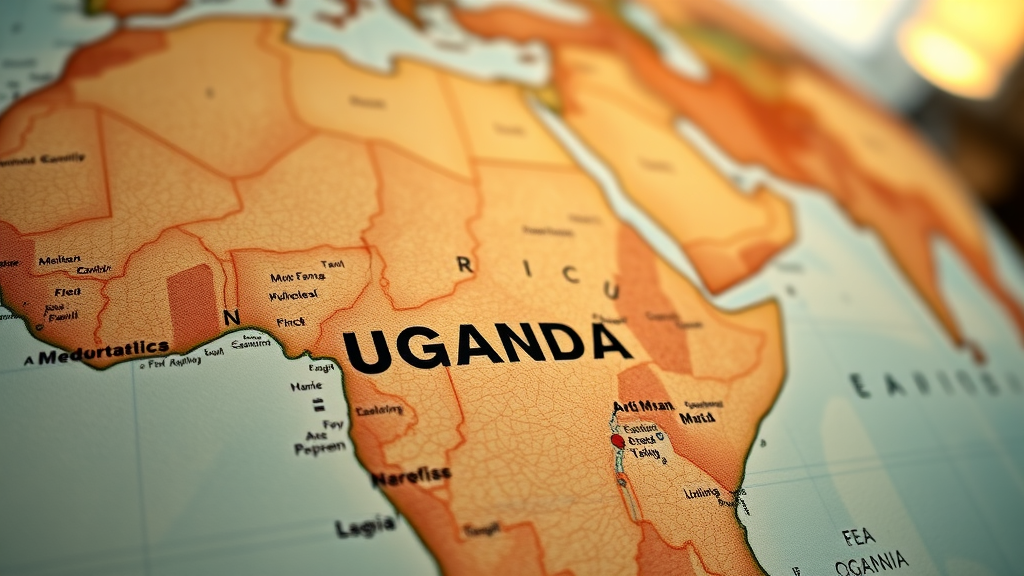What does Uganda's membership in the Fund for Export Development in Africa (FEDA) mean for its economic future? As the country takes a decisive step towards enhancing its industrial sector and boosting trade efficiency, this article explores the implications of Uganda FEDA membership on its economy and the wider African context.
Overview of Uganda's FEDA Membership

On March 6, 2025, Uganda made a significant leap in its economic strategy by joining the Fund for Export Development in Africa (FEDA). This vital membership is pivotal as it enhances Uganda's efforts to engage deeply within the African economic framework, fostering a future of collaboration and enriched trade opportunities. Uganda’s accession to FEDA adds to its network with 20 other member states, amplifying its influence in regional economic discussions.
The FEDA was established through the African Export-Import Bank (Afreximbank) to provide essential funding and investment for development projects across Africa, particularly those engaging in value-added exports and manufacturing. This partnership aims to address the critical funding gaps that hinder African nations from achieving their full economic potential.
Significance of FEDA in Africa's Economic Landscape

FEDA plays a crucial role in reshaping Africa’s economic landscape, positioning itself as a vital tool for promoting intra-African trade and industrialization. By focusing on three main areas: intra-African trade development, value-added exports, and investment in manufacturing, FEDA serves as a catalyst for significant economic transformation across the continent.
This shift towards a more self-sufficient economic model aligns with the sentiment shared by Uganda’s leaders. For Uganda to transform its economy, relying more on trade than foreign aid is imperative. The involvement in FEDA is expected to drive sustainable growth through enhanced trade relations among African countries, ultimately addressing the continent’s longstanding reliance on external funding sources.
Expert Insights on Uganda's Decision to Join FEDA
“Uganda’s decision to join FEDA is a testament to the country’s confidence in FEDA’s mission and to its commitment to accelerating Africa’s economic transformation, value-added export development and industrialization,” says Marlene Ngoyi, CEO of FEDA. This statement underscores the profound belief in FEDA’s vision as a pathway to sustainable development and industrial growth across Africa.

Moreover, as Uganda becomes an active participant in FEDA, it positions itself to attract investments in sectors that are crucial for both national and regional development. That said, engagement with FEDA is not only about funding but also about commitment to innovation and improvement within various economic sectors.
Potential Benefits of Uganda's FEDA Membership
Investment Opportunities in Manufacturing and Export Sectors

With Uganda actively participating in FEDA, significant investment opportunities are anticipated in the manufacturing and export sectors. This aspect of Uganda FEDA membership centers around boosting local industries and operational capabilities. Increased capability can facilitate job creation and elevate the standards of living for many citizens.
The injection of capital from FEDA will likely lead to advanced facilities and technologies within the manufacturing sector. This can potentially revolutionize local businesses, providing them with the resources necessary to compete on a global scale. With meaningful investments in technology and equipment, Uganda can dramatically enhance its production capabilities, which will in turn improve the value and quantity of exports.
Enhancing Intra-African Trade

Another crucial aspect of Uganda’s FEDA membership revolves around enhancing intra-African trade. FEDA emphasizes the need for African nations to foster trade relationships among themselves rather than depend solely on external markets. With strategic support from FEDA, Uganda aims to streamline its trade processes, making it easier for goods to flow not just within its borders but across Africa.
This approach aligns with the broader vision of creating a self-sustaining economic ecosystem within Africa, where goods, services, and innovations can circulate freely, propelling the continent toward economic autonomy. For more insights on how intra-African trade is being transformed, you can explore the impact of the AfCFTA on African logistics.
Challenges and Considerations for Uganda's Membership
Addressing the Funding Gap in Trade
While the opportunities brought forth by Uganda's membership in FEDA are promising, challenges remain. Addressing the funding gap in trade—especially in the context of local businesses—poses a significant hurdle. Uganda needs to ensure that adequate support mechanisms are in place to make the most of the funds available through FEDA.
Navigating Economic Policies and Regulations

Navigating the complex landscape of economic policies and regulations also stands out as a possible challenge. Adapting to FEDA's frameworks while synchronizing local policy improvements will require meticulous planning and robust Governmental strategies. Meanwhile, aligning Uganda's national regulations with FEDA's objectives will be essential for maximizing benefits and minimizing friction in the mobilization of resources.
Conclusion: The Path Forward for Uganda and FEDA

In conclusion, Uganda’s strategic decision to join the Fund for Export Development in Africa (FEDA) opens a path toward robust economic growth and industrialization. By aligning with FEDA's mission, Uganda not only seeks immediate benefits in terms of investment and trade enhancement but also positions itself as a proactive player in reshaping Africa's economic landscape.
As Uganda forges ahead, the focus will be on overcoming challenges, enhancing trade efficiency, and maximizing the benefits of this membership, thus contributing to a prosperous future for both the nation and the African continent. For a broader perspective on how major investments are reshaping African trade, consider reading about Dangote's oil refinery and its impact on African trade.
What You'll Learn
- The significance of Uganda's membership in FEDA.
- Potential economic benefits from joining FEDA.
- Challenges Uganda may face through this partnership.
Key Takeaways
- Uganda FEDA membership holds promise for economic transformation.
- Investment in manufacturing can greatly benefit Uganda’s economy.
- Enhancing intra-African trade is essential for sustainable growth.
FAQs
-
What is FEDA?
FEDA is the Fund for Export Development in Africa, a division of Afreximbank focused on facilitating investment in development projects across Africa. -
How will Uganda benefit from its FEDA membership?
Uganda can expect investments in various sectors, improved trade relationships within Africa, and access to resources to boost its manufacturing capabilities. -
What are the biggest challenges Uganda may face?
Uganda will need to address funding gaps and adapt its economic policies to align with FEDA’s objectives.
People Also Ask
1. How does FEDA support African countries?
FEDA provides essential capital and investment opportunities to enhance economic growth and export development in African economies.
2. What are the goals of joining FEDA?
The primary goals include industrialization, value-added exports, and strengthening intra-African trade.
Call to Action
As Uganda embarks on this ambitious journey with FEDA, it is essential for both citizens and investors to remain informed and engaged in the unfolding developments. Let us collectively work towards a prosperous future for Uganda and Africa at large, leveraging the benefits of membership in FEDA.
 Add Row
Add Row  Add
Add 






 Add Row
Add Row  Add
Add 

Write A Comment